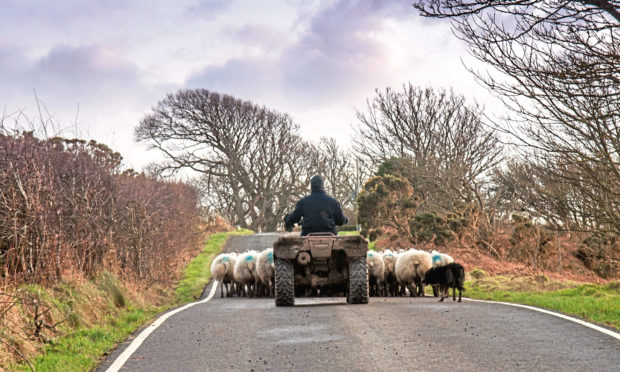Farmers and crofters in the Highlands and Islands are less optimistic about the agricultural industry’s post-Brexit future than their counterparts in eastern and southern Scotland, according to a new survey.
Results from the survey, carried out by Scotland’s Rural College (SRUC) and the James Hutton Institute on behalf of the Scottish Government, found three in four Scots farmers have a pessimistic or sceptical view about the industry’s future outside of Europe.
Only 26% of the 2,494 respondents said they felt positive about the future of farming after Brexit, while 37% made negative statements about the UK’s exit from Europe.
The remaining 37% were said to have more neutral views. However they all said they were concerned about future planning for their businesses.
The majority of respondents said most farmers they know think Scottish farmers will be worse off after Brexit, and the implications are too complex for them to change their plans for the future.
Those who were optimistic about Brexit said they planned to invest in their businesses to boost productivity, and they believed the UK’s withdrawal from Europe presented an opportunity to increase income from agri-environmental schemes.
The survey also revealed farmers with higher levels of education were more likely to be actively preparing for Brexit, and those in Less Favoured Areas regions, including the Highlands and Islands, were more likely to hold negative views towards Brexit.
“What this work shows is the large amount of stasis in the industry driven by the uncertainties around Brexit and wider trading conditions,” said Professor Andrew Barnes from SRUC, who conducted the research.
“Ultimately, the concern is that this leads to a decline in investment and has consequent impacts on productivity and growth in the future.”
Dr Lee-Ann Sutherland, a research leader at the James Hutton Institute, said the research highlighted farmers’ fears over the risks associated with Brexit.
She said: “The biggest issue is uncertainty.
“Brexit makes it difficult for farmers to plan, which impedes their ability to move their farms forward.
“Increasing the certainties around how Brexit will impact on commodity prices, subsidies available and other economic conditions is essential to enabling Scottish farmers to develop their businesses.”
